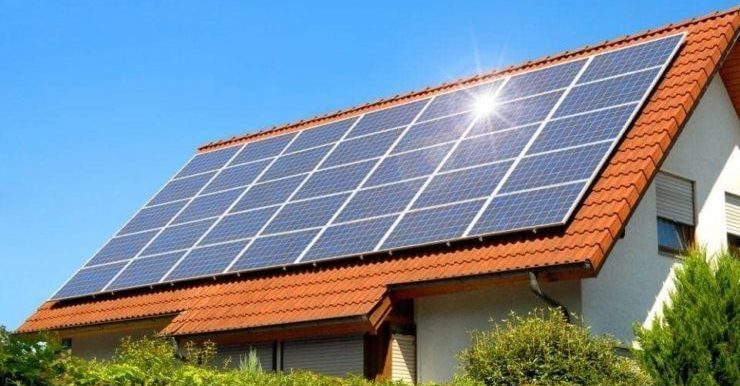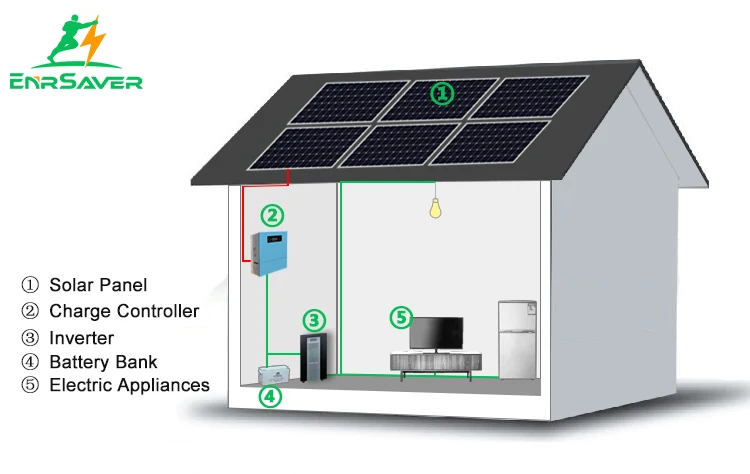Solar Panels For 2 Bedroom House | How Many Solar Panels Do You Need for 2 Bedroom House?
How many solar panels do you need for a 2 bedroom house?
If you are planning to install solar power on your home, then this article will help you determine the number of solar panels required.
The average American house uses 867 kWh of electricity per month, so to completely power a 2-bedroom home with solar energy you would need around 19 panels. However, since not every day is sunny and homes typically don’t use all their energy at once, it’s best to calculate your specific needs based on your monthly electricity usage.
The best way to do this is to contact a professional solar company and have them assess your energy usage. They will be able to tell you how many panels you need, as well as the size and type of solar panels you need.
How do I calculate the number of solar panels I need?
The number of solar panels you need depends on the size of your house and how much sun it gets. To calculate you will need the following:
Your annual electricity usage
The annual electricity usage is the amount of energy and electricity you use in your home over a full year. Refrigerators, air conditioning units, small kitchen appliances, lights, chargers and more all use electricity. To calculate the number of solar panels you need, first find out what percentage of your electricity usage is covered by solar panels. This is called the “load factor” and it’s usually between 20% and 30%. Then, multiply that percentage by your annual electricity usage.
For example, if you have a 600 sq. ft. house and your load factor is 25%, then you need about 12 kW of solar panels.
Your annual sunshine hours
To calculate the number of solar panels you need, you will first need to know how many hours of sunlight your location gets per year. Your solar panels only work when they are in direct sunlight. So, if your property doesn’t receive full sun for most of the day, it might not be a good option for solar power.
You can also use this information to estimate how much energy your solar panels will produce each year. Multiply the daily sunshine hours by the wattage of your chosen panel and you’ll have a good idea!
The size of your roof
It’s important to measure your roof and find out how much space you have available. The average solar panel is two square meters, so the size of a roof will determine how many panels are needed.
The average solar installation will require between 335 and 405 square feet of roof space. To find out how much roof space your solar system needs, just multiply the number of panels you need by 17.55 square feet, which is the area of most residential solar panels sold today.
How much electricity does your property use?
The amount of electricity used by a property is typically based on the size of the home, as well as how many people live in it. In order to calculate the number of solar panels needed, you need to know how much electricity your property currently consumes. You can find this information out by looking at your energy bill or using a free smart meter from your energy supplier.
The cost to power a property is predicted to rise in the near future, so it’s worth considering how much electricity you currently use and how that compares with the national average.
How Much Do Solar Panels Cost?

The average cost of solar panels is $2.77 per watt, but this can vary depending on the size and type of system you install. For example, a typical residential solar panel system that is installed on a home in the U.S. costs between $17,538 to $23,458 after installation and incentives are included.
Solar panels cost more than other types of renewable energy because of the technology and materials used to make them. However, you can offset the cost by taking advantage of tax incentives or a solar leasing program.
According to Energy Sage , an average home uses 901 kilowatt-hours (kWh) of electricity each month. A typical solar panel system can produce between 1 and 2 kilowatts per hour, so it would take between 20 and 24 solar panels to generate enough electricity for your home.
Average cost of solar power for home
The average cost of solar power for a home is around $20,498. This number can vary depending on the size and type of solar panel system you install, as well as your location and the amount of sunlight your area receives. However, this number is a good estimate for the average cost of solar power.
17 solar panels cost
The cost of installing solar panels is dependent on the wattage, number of panels, and placement. For example, a homeowner might install 8 solar panels at a total cost $13,098.
In addition to the cost of the solar panels themselves, homeowners should budget for a qualified electrician to install the system. Depending on the size and complexity of the installation, costs can range from $50 to $100 per hour .
34 solar panels cost
The average cost of 30 solar panels is $24,420. The federal solar tax credit allows you to deduct 26% of the total cost from your taxes.
The first cost to install a solar power system on your home is the cost of the panels and inverter . The balance of system includes wiring, mounting systems, and installation costs which account for 20% of total costs . Labor and permits account for another 20%.
Thus, on average it costs around $17,538 to $23,458 to install a solar power system, depending on the size and complexity of the system.

What are some tips for choosing solar panels for 2 bedroom house?
When it comes to solar panels for 2 bedroom house, there are a few things you’ll want to keep in mind
- You want to make sure that the panels are efficient at converting sunlight into electricity. The higher the conversion rate, the more energy you can get from your solar panels for 2 bedroom house.
- You want to make sure that the panels are durable and built to last. You don’t want your solar panels for 2 bedroom house to break down after only a few years.
- You want to make sure that the panels are designed for your climate. If you live in an area with lots of rain or snow, you may need a different type of solar panel than someone who lives in a warm, sunny area.
- You want to make sure that the panels are easy to install and can be wired into your home’s electrical system without too much trouble.
- You want to make sure that the panels are made in a sustainable way. You’ll also want to make sure that they’re safe for your family and pets.
- You want to make sure that the panels come with a warranty.
- You want to make sure that your solar panels are affordable. You’ll also want to make sure that you can get financing for them if you need it.
- You want to make sure that the panels will last a long time and aren’t likely to break down.
Types of Solar Panel Systems
Grid-Tied System
A Grid-tied system is a system which connects the solar panels to your local grid. This type of system allows you to sell any excess electricity generated by the panels and buy back more electricity when the solar panels are not producing enough for your home needs. This is the most common type of system in the United States today.
This type of system requires a grid-tie inverter, which converts the direct current (DC) electricity produced by your solar panels into alternating current (AC) electricity.

Grid-tied with battery backup
A grid-tied solar panel system is a type of photovoltaic system that ties into the utility power grid, and it will automatically disconnect from the power supply in case of an outage.
A grid-tied system with battery backup will have an inverter that converts the electricity from DC to AC, and it can store power during times of high production.
If you have a grid-tied system with battery backup, it will be more expensive than a standard grid-tied system.
Off-Grid System
Off-grid system is a solar power generation and storage solution that does not rely on the electric grid to function. Off-grid systems can be very useful in remote areas where there are no electric grids or in areas that are experiencing power outages.
Off-grid systems can be very useful in remote areas where there are no electric grids or in areas that are experiencing power outages.
Off-grid systems usually use solar panels to generate electricity and a battery bank to store electricity for later use. The size of the system is determined by the amount of power required throughout the day.
What are the benefits of solar panels?
When it comes to solar panels, there are many benefits to consider. Installing them can help reduce your energy bill by more than 50%. In addition, you may be able to make money from the sun by selling back excess energy to the grid.
Solar panels also offer long-term savings. The payback for solar panels is calculated by taking your total costs and the amount you will save. This means that you can actually break even in as little as four years!
Another great benefit of solar panels is that they’re a renewable resource. Unlike other forms of energy, such as coal or natural gas, the sun will always be available. This makes solar a reliable source of power for generations to come.
Finally, installing solar panels is an effective way to reduce your carbon footprint and do your part in helping the environment.
FAQs
Can solar power run a whole house?
Solar panels are not a one-size-fits-all solution. It is important to ensure that the energy output of a solar system matches the household’s needs, since it cannot be relied on in all cases.
Grid electricity will be used when insufficient power is generated by solar panels. In order to calculate the number of panels needed, you should do a quick calculation based on your area’s average conditions in terms of sunlight hours and solar radiation.
Is 5kW enough to run a house?
A 5kW solar system is typically enough to power a small home. The size of the home, its energy needs, and the amount of sunlight available will all affect how much electricity a solar system can produce. A 5kW solar system requires between 8 and 20 solar panels, depending on how many watts each panel produces.
How big of a solar panel do I need to run my house?
The size and power needs of a home vary depending on things like the number of occupants and the size of the house. A 2 bedroom house will likely use around 1,500 kWh of energy per month.
How many watts is the average solar panel?
An average solar panel is about 300 watts. The more panels you have, the higher your wattage will be.
How long do solar panels last?
The lifespan of a solar panel is dependent on the quality. A typical solar panel lasts for about 25-40 years, and some can last up to 60 years.
